5 foods to avoid before bedtime
Chocolate, wine, and more of your favorites could be stealing your sleep.
Updated on July 11, 2024
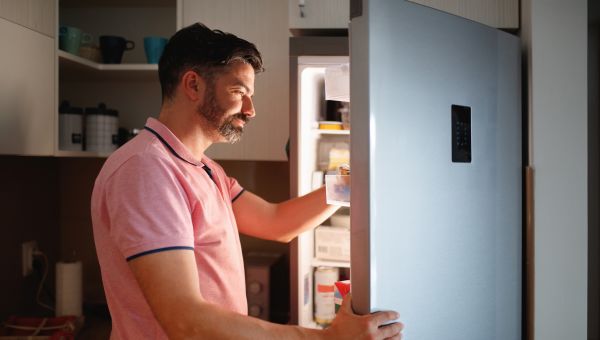
Ever notice how what you eat seems to affect how you sleep?
Although late dinners are occasionally unavoidable, studies suggest that evening meals and nighttime snacking, regardless of what you munch on, are associated with poorer sleep quality. Some foods, however, may have more of an impact than others. Knowing which foods to avoid before bed could mean the difference… Show More
Ever notice how what you eat seems to affect how you sleep?
Although late dinners are occasionally unavoidable, studies suggest that evening meals and nighttime snacking, regardless of what you munch on, are associated with poorer sleep quality. Some foods, however, may have more of an impact than others. Knowing which foods to avoid before bed could mean the difference between a restful snooze and a night of tossing and turning. Here are five to limit or avoid before bed.
Show Less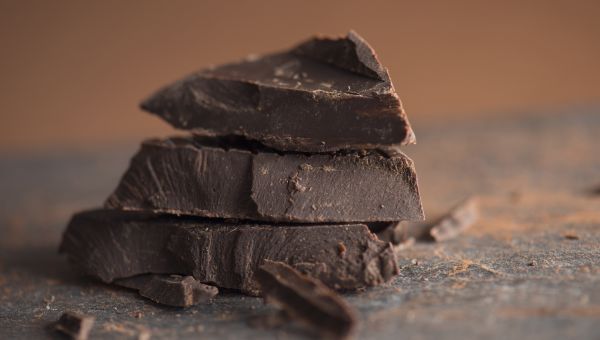
Chocolate
Dark chocolate might be good for your heart, but this velvety treat may not be conducive to a good night’s sleep.
The powerful antioxidants found in dark chocolate are responsible for heart health benefits like increased levels of high-density lipoprotein (aka HDL or "good" cholesterol) and… Show More
Dark chocolate might be good for your heart, but this velvety treat may not be conducive to a good night’s sleep.
The powerful antioxidants found in dark chocolate are responsible for heart health benefits like increased levels of high-density lipoprotein (aka HDL or "good" cholesterol) and healthier blood vessels. The higher the percentage of cacao, the greater the benefits—but the more caffeine the chocolate contains. Caffeine stimulates your brain, keeping you awake and alert. Two ounces of 70 to 85 percent cacao dark chocolate holds 45.4 milligrams of caffeine, about the same as half a cup of coffee.
Show Less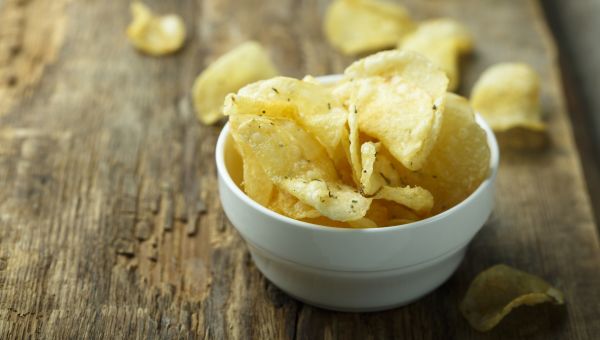
Fatty Foods
It's ideal to limit your overall intake of fatty foods, and that goes doubly for the hours just before you get into bed.
Red or processed meats, fried treats, and greasy snacks like potato chips all contain high levels of fat, particularly saturated fat. Fat can aggravate heartburn, a symptom of… Show More
It's ideal to limit your overall intake of fatty foods, and that goes doubly for the hours just before you get into bed.
Red or processed meats, fried treats, and greasy snacks like potato chips all contain high levels of fat, particularly saturated fat. Fat can aggravate heartburn, a symptom of acid reflux in which stomach acid makes its way into your esophagus. Heartburn can make falling asleep difficult, and the pain can cause you to wake throughout the night. If you’re going to indulge, do it at least three hours before hitting the sack.
Show Less
Alcohol
As anyone who’s had a little too much wine can tell you, alcohol can make you drowsy. But this sleepy feeling doesn’t necessarily translate to a good rest. Alcohol can interfere with restorative sleep, aggravate existing breathing problems, and cause you to wake up multiple times throughout the… Show More
As anyone who’s had a little too much wine can tell you, alcohol can make you drowsy. But this sleepy feeling doesn’t necessarily translate to a good rest. Alcohol can interfere with restorative sleep, aggravate existing breathing problems, and cause you to wake up multiple times throughout the night.
A study published in 2020 in Scientific Reports found that men who averaged more than 21 drinks per week (or more than 3 per day) slept considerably worse than those who didn’t drink at all. Another 2013 review of 20 studies in Alcohol, Clinical & Experimental Research suggested that the more alcohol consumed before bed, the greater the negative impact on sleep quality. And while a sleepless night or two won’t send your body into shock, nightly interruptions could result in more fatigue and stress.
Show Less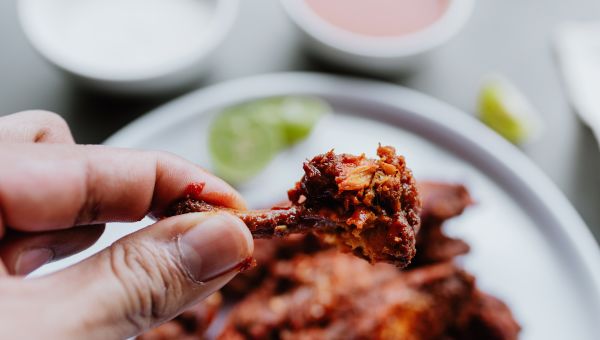
Spicy Foods
Fiery cuisine won’t cause nightmares, but it could disrupt your dozing. For some, spicy food aggravates acid reflux, which can cause heartburn. If your esophagus is already damaged by reflux, it can be irritated even further by eating spicy food.
To make matters worse, symptoms of acid reflux may… Show More
Fiery cuisine won’t cause nightmares, but it could disrupt your dozing. For some, spicy food aggravates acid reflux, which can cause heartburn. If your esophagus is already damaged by reflux, it can be irritated even further by eating spicy food.
To make matters worse, symptoms of acid reflux may worsen when lying down, and sleep troubles, like insomnia, are more common among those with acid reflux.
Show Less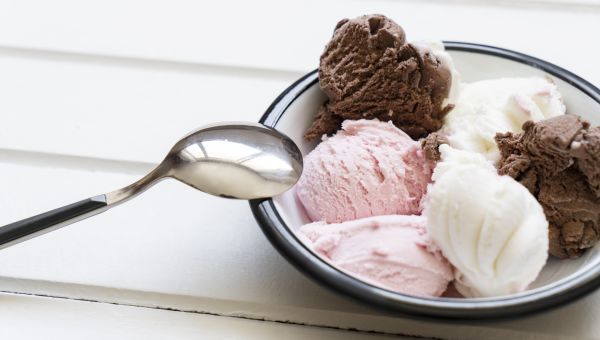
Ice Cream
While it's delicious, luxurious, and feels like the perfect indulgence to end a long day, ice cream is high in fat and sugar, neither of which does your sleep any favors. One cup of chocolate ice cream, for example, contains roughly 14 grams of fat and 34 grams of sugar. Both are associated with… Show More
While it's delicious, luxurious, and feels like the perfect indulgence to end a long day, ice cream is high in fat and sugar, neither of which does your sleep any favors. One cup of chocolate ice cream, for example, contains roughly 14 grams of fat and 34 grams of sugar. Both are associated with lighter and more interrupted sleep.
Need something with a little sweetness and creaminess to enjoy before bed? Try low-calorie snacks instead, like an apple paired with natural peanut butter or a low-fat string cheese with a few whole grain crackers.
Show Less
National Sleep Foundation. The Link Between Nutrition and Sleep. November 12, 2020.
Cleveland Clinic. Dark, Milk or White – Which Chocolate Is Best for Your Heart? May 20, 2021.
Harvard Health Publishing. In the journals: Cocoa reduces inflammation associated with heart disease. February 1, 2010.
Cleveland Clinic. Dark Chocolate Health Benefits. March 10, 2022.
Nehlig A. The neuroprotective effects of cocoa flavanol and its influence on cognitive performance. Br J Clin Pharmacol. 2013 Mar;75(3):716-27.
Sleep Foundation. GERD and Sleep. Updated October 7, 2022.
Jeff Olsen. Timing snacks to avoid heartburn. Mayo Clinic. November 23, 2017.
Britton A, Fat LN, Neligan A. The association between alcohol consumption and sleep disorders among older people in the general population. Sci Rep. 2020 Mar 24;10(1):5275.
Chan JK, Trinder J, et al. The acute effects of alcohol on sleep electroencephalogram power spectra in late adolescence. Alcohol Clin Exp Res. 2015 Feb;39(2):291-9.
NIH: National Institute on Alcohol Abuse and Alcoholism. Alcohol and Sleep. July 1998.
Cleveland Clinic. GERD (Chronic Acid Reflux). Last reviewed December 6, 2019.
St-Onge MP, Roberts A, et al. Fiber and Saturated Fat Are Associated with Sleep Arousals and Slow Wave Sleep. Journal of Clinical Sleep Medicine. January 15, 2016.
Alahmary SA, Alduhaylib SA, et al. Relationship Between Added Sugar Intake and Sleep Quality Among University Students: A Cross-sectional Study. Am J Lifestyle Med. 2019 Aug 23;16(1):122-129.
Greer SM, Goldstein AN, Walker MP. The impact of sleep deprivation on food desire in the human brain. Nature Communications. 2013. 4, Article number: 2259.
More On


video
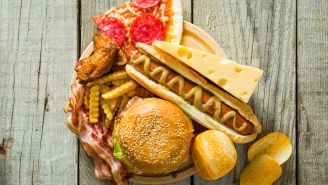
slideshow


video


video
